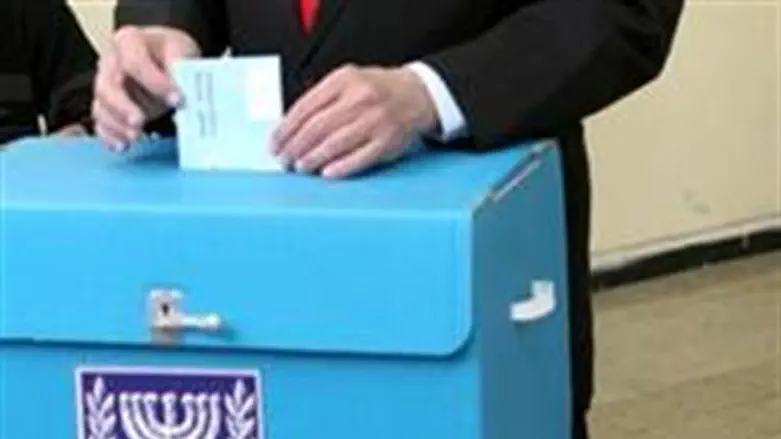
MK Carmel Shama HaKohen, chairman of the Knesset Economics Committee, submitted a bill Monday aimed at putting an end to employers dictating how their employees must vote in Israel's elections.
This was once a common phenomenon, during the years of immigration waves, among employers of immigrants from non-Western and non-democratic countries, but is less prevalent today.
"This bill is intended to end the phenomenon of 'Salah Shabati'- a phenomenon in which people have clear opinions but are led like sheep by an employer, or other authority figure," HaKohen said.
"This bill will prevent employers from tampering with or influencing elections by dictating their employees’ votes. This bill will totally protect those working in Israel from facing consequences from employers based on how they choose to vote in elections," he explained.
"A free and democratic country like Israel should not allow employers or those with authority over someone to influence, intimidate or attempt to hinder a person from voting according to their own conscience and world view.
"Joining a political party, and participation in its internal procedures, are welcome activities that allow us to perfect and streamline our political system in Israel – but only when those decisions are made naturally, freely, and voluntarily.
"The phenomenon in which workers are forced to join a party because an employer commands it must end. Sadly, situations where workers are driven in buses to the polls with instructions on how they are to vote - and are warned not to deviate from them - do occur in Israel."
HaKohen explained, "The freedom of thought, conscience and dignity of every employee is then at risk of being turned into a puppet for their employers."
"The situation today, in which a chairman or member of the board governing hiring, working conditions, or promotion can deprive employees of conscience and political will under threat of retribution corrupts our political system - as does the ability of tycoons to threaten decision makers with blocs of votes they command."
Editor's Note: MK HaKohen's reference to Salah Shabati comes from Ephraim Kishon's satire Salah Shabati, about an impoverished Yemenite immigrant trying to make ends meet. He believes all the politicians who come to his shack to make him promises are telling the truth and wants to please them all. Salah ends up putting all the parties' voting slips that are in the booth into the envelope when he casts his vote, as he doesn't understand the democratic system.